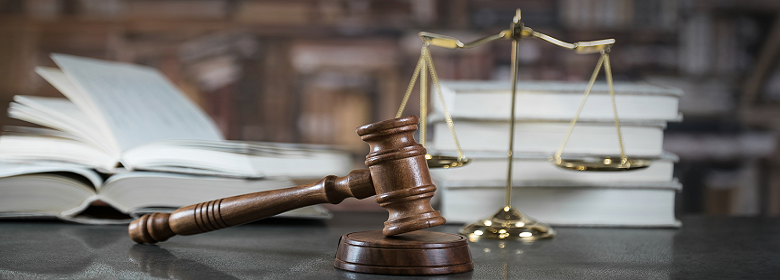
Stock image.
Atlanta—In an opinion handed down Monday, the Georgia Supreme Court highlighted the limits a personal injury settlement could place on a wrongful death claim filed years later. Bibbs, et al. v. Toyota Motor Corp., et al, S18Q0075.
In answering a pair of certified question posed by the United States District Court for the Northern District of Georgia, Justice Keith Blackwell concluded that, while a personal injury settlement for a woman left in a coma following a car wreck substantially limited the family’s ability to recover in a wrongful death suit, the family could still seek at least some non-economic damages for the loss of the woman’s life.
The unanimous opinion stems from a federal wrongful death product liability suit filed against Toyota Motor Corp. and Toyota Sales USA by the family of Delia Bibbs, who died after spending more than 20 years in a coma due to injuries she suffered in a car crash.
Shortly after the 1992 wreck, Bibbs’ husband, as her guardian, had sued the companies, claiming a defective seat belt latch and door-locking mechanism in her 1986 Toyota YR2 van led to her injuries. Bibbs’ husband ultimately settled that claim against Toyota under the terms of a pre-verdict high-low agreement, after jurors awarded more than $36 million.
The terms of that settlement released Toyota from liability for all “claims” and “damages,” but excluded from the release any claim for “Delia Bibbs’ wrongful death, inasmuch as Delia Bibbs has not died and no such claim was made or could have been made in [the personal injury lawsuit].”
Bibbs never recovered from her coma. Subsequent to her death more than two decades later, Bibbs’ husband and children filed their wrongful death action against Toyota. The car maker responded by contending the earlier settlement agreement limited the family to recovering only burial expenses.
On certification from the federal district court, the Court found that, although the settlement agreement did not bar plaintiffs from bringing a wrongful death suit, it barred claims for damages that were or could have been raised in the personal injury action. Blackwell relied on a string of prior case law in finding “wrongful death claims are ‘wholly derivative’ of personal injury claims,” and “the sorts of damages recoverable in wrongful death actions are substantially the same as the kinds of damages that may be recovered in personal injury actions,” such as lost earnings and loss of enjoyment of life. In other words, a potential overlap exists between damages sought between the two actions.
The Court acknowledged that damages may not necessarily overlap between a personal injury claim and a subsequent wrongful death action. For example, a personal injury action may award only past economic damages, while a subsequent wrongful death action may seek economic losses caused by the victim’s death. However, in this case, where Bibbs was left in a coma and damages for future losses were sought in the personal injury action, the Court found the overlap was “substantial.”
“Wrongful death damages and personal injury damages are often distinguishable, but sometimes overlap,” Blackwell wrote, “and where they do, double recovery is impermissible.”
In reaching its conclusion, the Court rejected plaintiffs’ argument that double recovery should be allowed because the state’s wrongful death statute is punitive. “The statute is punitive not because it permits double damages, but because it allows recovery ‘for the full life of the deceased, irrespective of its real value to the person in whom the cause of action is vested,’” Blackwell reasoned. “We have never interpreted the wrongful death statute to allow recovery of the very same damages that had already been recovered or released.”
Applying the principle to the case at issue, the Court found the prior settlement agreement barred plaintiffs from recovering any additional economic damages in the wrongful death claim. However, the court rejected Toyota’s contention that the settlement limited recovery to burial expenses alone, and instead found a jury could award non-economic damages for Bibbs’ death.
“Put simply, we cannot say Bibbs’ life in a coma had zero monetary value,” Blackwell wrote. “Whatever the residual value, if any, of Bibbs’ life to her while she was in a coma, this question in properly litigated in a district court.”
Email Arlin Crisco at acrisco@cvn.com.
Related Information
CVN offers an unparalleled library of personal injury and product liability trials in Georgia and state courts across the country.
Learn how you can watch the nation’s most extensive archive of trials for $99 a month.





